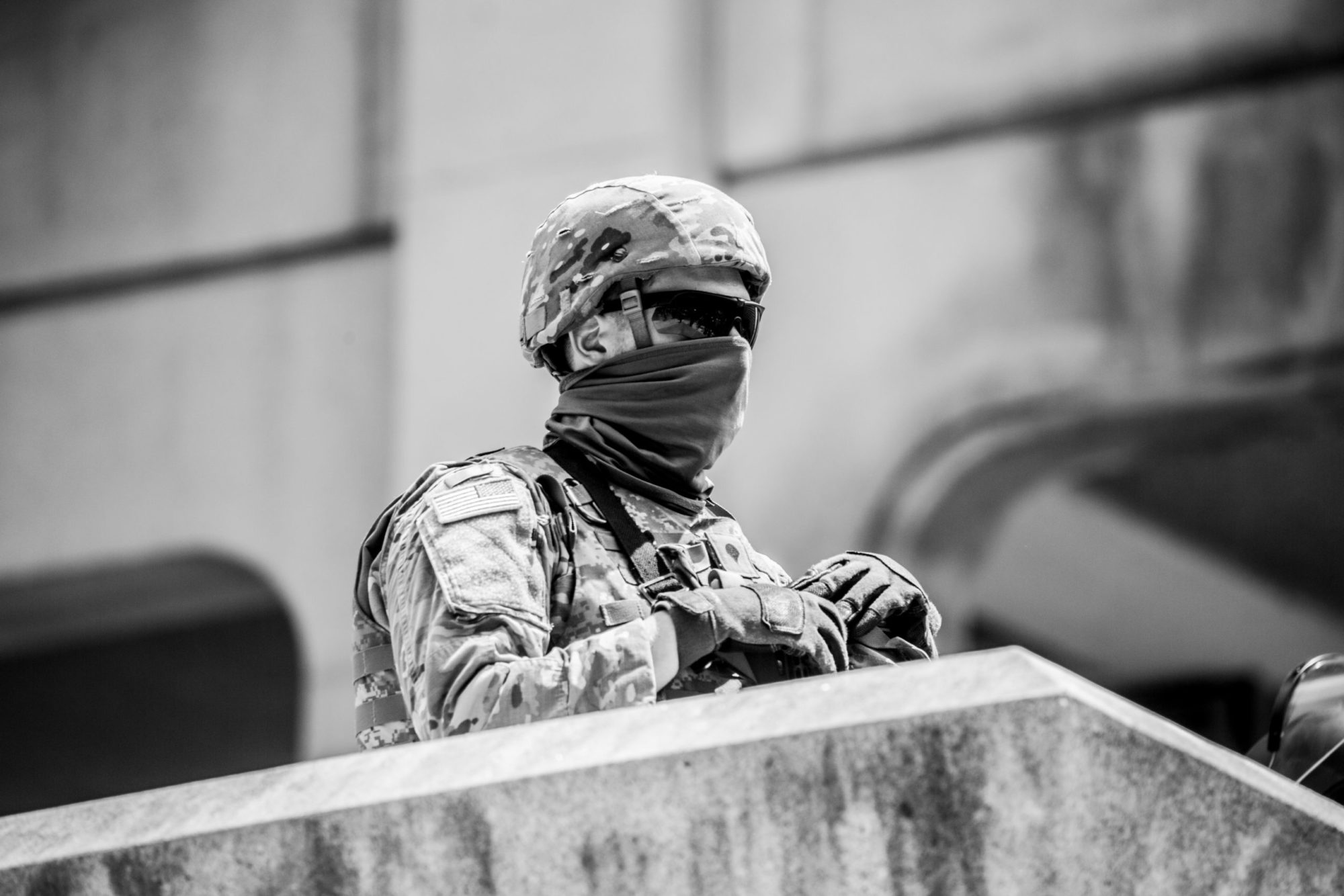The recent police killing of George Floyd has sparked a long-overdue nationwide reckoning with police violence and systemic racism in America. But as people across the country have taken to the streets to voice their frustrations with racial injustice and police brutality, the presence of heavily armed, masked, and in some cases unmarked law enforcement forces has highlighted the dangerous militarization of American policing. Although police brutality in the US results from various domestic issues endemic to America’s long history of institutionalized racism, some of America’s militarized framework for law enforcement is imported from abroad: for years, US police forces have been learning the wrong lessons through extensive training with Israel’s military as well as its national police and intelligence forces.
Since the early 1990s, hundreds of US law enforcement officers — including police officers and agents of the FBI, CIA, and ICE — have participated in police exchange programs with Israel in the Occupied Palestinian Territories and Israel as well as attended Israeli lobby-sponsored conferences in the US. These programs gained wider popularity after the 9/11 attacks, as the primary aim of the training programs was and remains to institutionalize Israeli law enforcement counterterrorism strategies within US law enforcement.
Herein lies the importation of police brutality. While both US and Israeli law enforcement engaged in brutal tactics long before the police exchange came about, the Israeli practices that American law enforcement officials might hope to bring home are steeped in a 5-decade-long history of military occupation and violent oppression of the region’s most marginalized – the Palestinian people.
Far from encouraging a vision of public safety that seeks to care for citizens and their protection, these exchanges risk reinforcing a wartime framing of law enforcement that already plagues American city streets and is evident in the lived experiences of communities of color in the US.
Indeed, this wartime mentality is inextricable from Israel’s counterterrorism and security strategy, which at its core has been designed to sustain over 50 years of military occupation of the Palestinian territories, an effective stratocracy plagued by oppression, institutionalized discrimination, and systematic human rights abuses of the Palestinian people. Numerous human rights organizations including Amnesty International, Human Rights Watch, and the US State Department have reported a plethora of Israeli military, security, and police human rights violations carried out in the name of security, which have included extrajudicial executions and other unlawful killings; use of torture, even against children; suppression of freedom of expression through government surveillance; and excessive use of force against peaceful protesters. The pretense of counterterrorism is a deceptive narrative marketed to US law enforcement officials to obscure the realities of Israel’s oppressive occupation.
Law enforcement officials from numerous states, including Florida, New Jersey, Maryland, Pennsylvania, California, Arizona, Connecticut, New York, Massachusetts, North Carolina, Washington state and DC Capitol police have traveled to Israel for training while thousands of others have received training from Israeli officials in the US. The NYPD even opened its own branch in Israel, and partially modeled its discriminatory Muslim surveillance initiative after Israel’s surveillance program used on Palestinians in the West Bank. NYPD’s Demographics Unit, which consisted of “mosque crawlers” serving as informants to spy on and map the daily life of Muslim communities, drew inspiration from Israeli practices in the Occupied Palestinian Territories according to a CIA officer who helped establish the program.
Although proponents of the US-Israeli police exchange dispute any connection between the programs and a militarized American police, numerous US-Israeli exchanges, including one in 2016 sponsored by the Anti-Defamation League, included in their agenda meetings with Israeli border police and briefings with the Israeli Defense Forces, the country’s military. It is impossible to think that the conflict centric mentality that drives Israeli security governance is not implicitly shaping these trainings and exchanges. Far from encouraging a vision of public safety that seeks to care for citizens and their protection, these exchanges risk reinforcing a wartime framing of law enforcement that already plagues American city streets and is evident in the lived experiences of communities of color in the US.
At a time when the US is in the midst of a historic moment in drawing attention to deep-rooted systemic racism and the militarization of US policing, it is especially imperative to underscore the fundamental dangers of US law enforcement’s participation in police exchanges with its Israeli counterparts. America is in no need of importing law enforcement strategies that intertwine domestic policing and military rule. At this pivotal moment, it is time to end the US-Israeli police exchanges.
Sabreen Abdelrahman is a researcher at the Center for International Policy’s Security Assistance Monitor program and an undergraduate at the University of California-Berkeley majoring in Political Science and minoring in Human Rights.





















